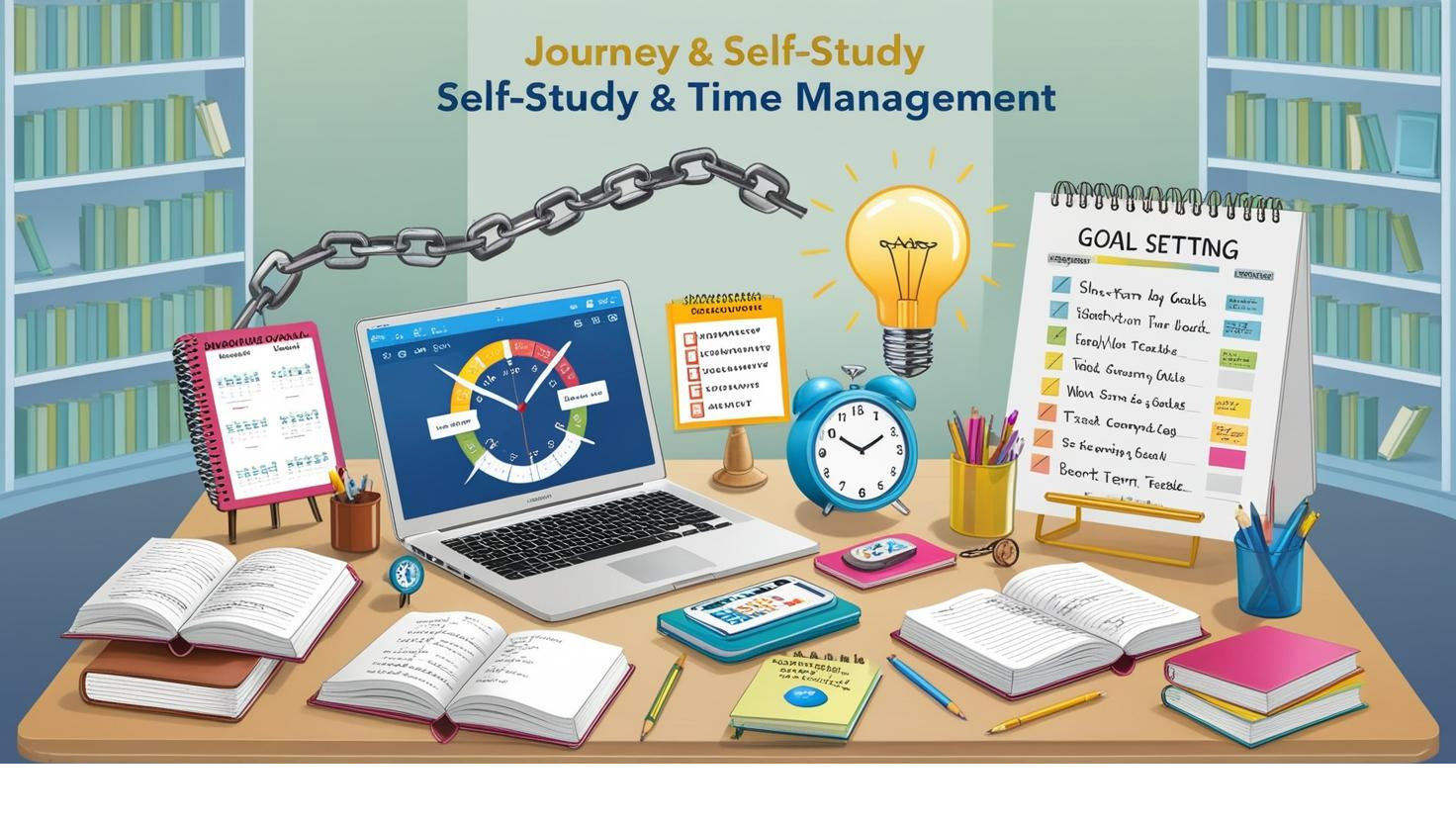Self-studying can be both a rewarding and challenging endeavor. Whether you’re pursuing academic goals, professional development, or personal interests, the ability to effectively study on your own is crucial. However, many of us struggle with procrastination, poor time management, and a lack of motivation. This blog post will explore practical strategies to enhance your self-studying skills, overcome procrastination, and make the most of your time.
1. Set Clear Goals and Objectives
Effective self-studying begins with clear, achievable goals. Start by defining what you want to accomplish. Instead of vague objectives like “study for the exam,” set specific, measurable goals such as “complete chapters 3 and 4 of the textbook by Friday.” This clarity not only helps you stay focused but also provides a sense of direction and purpose.
2. Create a Structured Study Plan
A well-structured study plan is essential for managing your time effectively. Break down your goals into smaller, manageable tasks and allocate specific time slots for each. Use tools like calendars or planners to organize your schedule. Incorporate regular breaks to prevent burnout and maintain productivity. A structured plan ensures that you stay on track and can monitor your progress.
3. Develop a Productive Study Environment
Your study environment plays a crucial role in your ability to focus and retain information. Choose a quiet, comfortable space free from distractions. Ensure that you have all the necessary materials within reach and keep your study area organized. A dedicated study space helps create a mental association between that area and productivity, which can boost your focus.
4. Use Active Learning Techniques
Active learning techniques can enhance your understanding and retention of material. Instead of passively reading or watching videos, engage with the content through methods like summarizing information in your own words, creating flashcards, or teaching the material to someone else. These techniques help reinforce what you’ve learned and identify areas that need further attention.
5. Implement the Pomodoro Technique
The Pomodoro Technique is a time management method that involves working in focused intervals, typically 25 minutes, followed by a 5-minute break. After four intervals, take a longer break of 15-30 minutes. This approach helps maintain high levels of concentration and reduces the likelihood of burnout. Experiment with different intervals to find what works best for you.
6. Address Procrastination with the 2-Minute Rule
Procrastination often stems from feeling overwhelmed by tasks. The 2-Minute Rule can help overcome this hurdle. If a task will take less than two minutes to complete, do it immediately. For more complex tasks, break them down into smaller, more manageable parts. By addressing the easiest parts first, you create momentum and reduce the tendency to procrastinate.
7. Prioritize and Set Deadlines
Prioritization is key to effective time management. Identify your most important tasks and tackle those first. Setting deadlines for each task, even if they are self-imposed, helps create a sense of urgency and keeps you accountable. Use tools like to-do lists or project management apps to keep track of deadlines and prioritize tasks.
8. Stay Motivated and Reward Yourself
Maintaining motivation can be challenging, especially when studying alone. Set up a system of rewards for completing tasks or reaching milestones. Rewards can be simple, such as a break, a treat, or a leisure activity. Celebrating small victories keeps you motivated and makes the process more enjoyable.
9. Seek Feedback and Adjust Your Approach
Regularly assess your progress and seek feedback, if possible. Reflect on what strategies are working and which areas need improvement. Be willing to adjust your approach based on your experiences and any feedback you receive. Flexibility is important in finding the most effective study methods for your personal learning style.
10. Maintain a Healthy Balance
Finally, ensure you maintain a healthy balance between studying and other aspects of your life. Overloading yourself can lead to burnout and decreased productivity. Incorporate time for relaxation, exercise, and social activities into your schedule. A balanced lifestyle supports overall well-being and enhances your ability to focus and retain information.
By implementing these strategies, you can boost your self-studying skills, overcome procrastination, and manage your time more effectively. Remember, success in self-studying is not about perfection but about consistent effort and adaptation. Embrace the process, stay committed, and watch your achievements grow.
